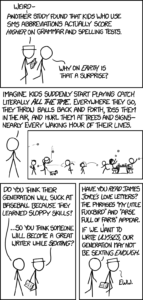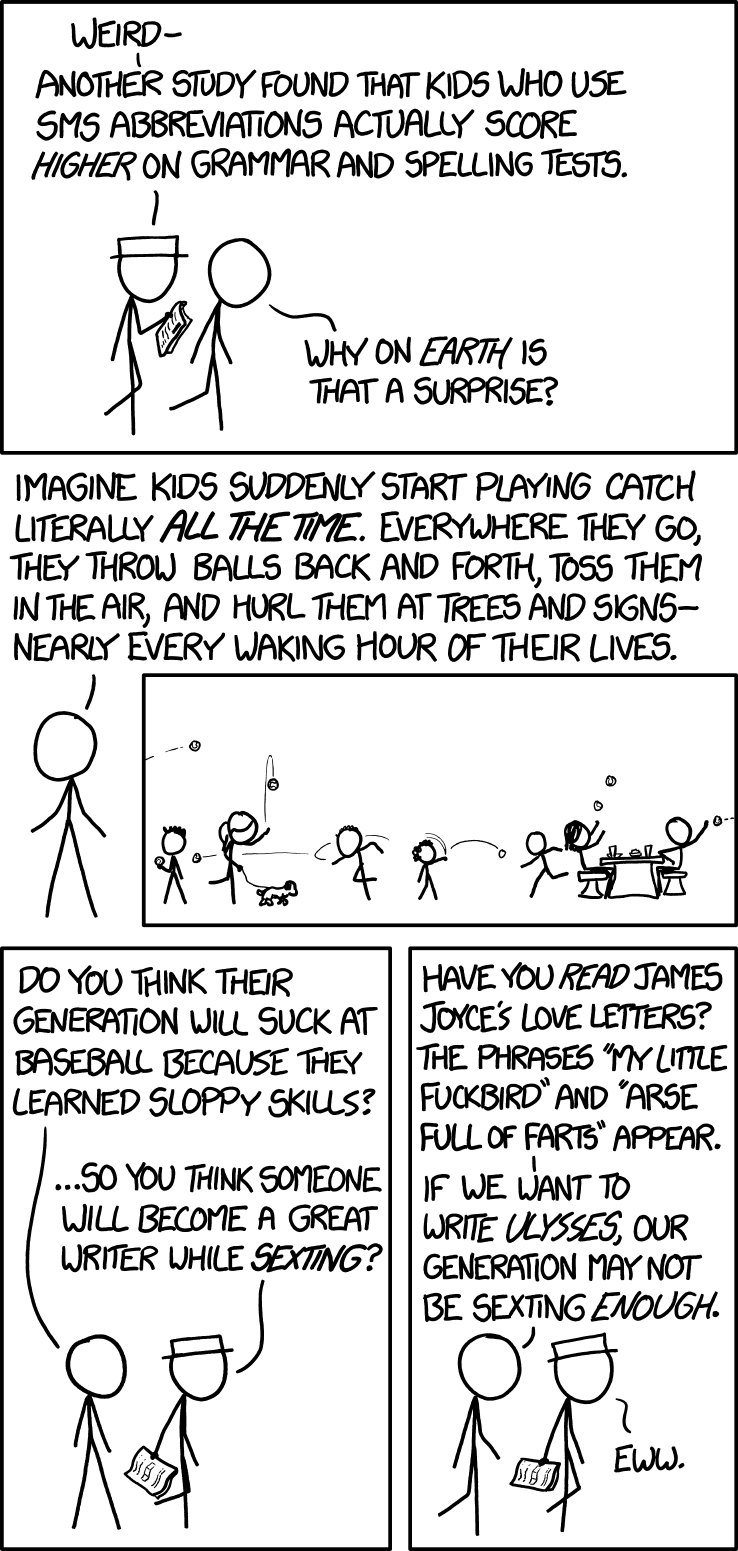Randall Munroe’s technology literacy narrative
As I was reading your technology literacy narratives, I was reminded of this xkcd comic from a number of years ago (August 2014, to be exact).

The hover text for that comic says:
I’d like to find a corpus of writing from children in a non-self-selected sample (e.g. handwritten letters to the president from everyone in the same teacher’s 7th grade class every year)–and score the kids today versus the kids 20 years ago on various objective measures of writing quality. I’ve heard the idea that exposure to all this amateur peer practice is hurting us, but I’d bet on the generation that conducts the bulk of their social lives via the written word over the generation that occasionally wrote book reports and letters to grandma once a year, any day.
As an addendum, I’ll just ask are y’all reading xkcd? If you’re interested in communicating science and other kinds of important, complex information for a general audience on the web (which you are or you wouldn’t be in this class, right?), then Randall Munroe’s comics are something you should be paying attention to. Some key examples:
- Comic #980, which is a guide to money: “It started as a project to understand taxes and government spending, and turned into a rather extensive research project. With upwards of 200 sources and 150,000 tiny boxes.”
- Comic #1127. Laid out entirely by hand, it traces the composition of the US congress through the ages based both on party membership and published statistical analysis of individual voting habits. Additionally, it highlights the paths of notable members of Congress and various historical trends and oddities.
- Comic #1732, A Timeline of Earth’s Average Temperature.
But really, the force of Randall Munroe’s intellect comes not from any single comic he’s created but from the series as a whole. He’s scientifically trained guy who worked for NASA and started drawing little stick-figure comics with science jokes, which has grown into some really powerful investigations of love, cancer, scientific and mathematical literacy, and the importance of play. He’s now published a number of books, including The Thing Explainer, a book that explains how complex things work using drawings and only the 100 most common words in the English language.
